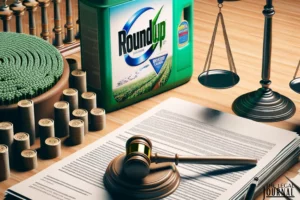Understanding Bayer’s $3.5 Million Roundup Weedkiller Verdict
In a recent landmark decision, a Philadelphia jury ordered Bayer to pay $3.5 million in damages for its Roundup weedkiller’s role in causing a woman’s cancer. This verdict, marking Bayer’s fifth consecutive legal defeat in similar cases, has significant implications for the company and those affected by its product.
Key Points:
- A Philadelphia jury found Bayer’s Roundup weedkiller responsible for causing cancer, awarding $3.5 million in damages.
- This case marks Bayer’s fifth consecutive loss in lawsuits alleging Roundup’s carcinogenic effects.
- The verdict included $462,500 in compensatory damages and $3 million in punitive damages.
- Scientific and regulatory disputes continue, with Bayer contesting the verdict based on global regulatory assessments.
- Bayer faces over 165,000 similar claims, having previously settled numerous cases for billions of dollars.
The Philadelphia Court of Common Pleas’ decision underscores a growing trend of judicial scrutiny over Bayer’s Roundup product. Despite Bayer’s contention against the verdict, citing “the overwhelming weight of scientific evidence and worldwide regulatory and scientific assessments,” courts are increasingly siding with plaintiffs. This verdict, though smaller than Bayer’s previous losses totaling over $2 billion, is significant as it reaffirms the legal challenges Bayer faces in defending its product against mounting lawsuits.
The legal journey of Bayer, particularly in the Roundup cases, illustrates the complex interplay between scientific evidence, regulatory stances, and judicial interpretation. The U.S. Environmental Protection Agency’s stance that glyphosate, Roundup’s active ingredient, likely does not pose a human health threat contrasts sharply with the World Health Organization’s 2015 finding of glyphosate’s potential carcinogenicity. These conflicting viewpoints play a crucial role in how courts assess liability and damages.
The case raises questions about the adequacy of corporate responsibility and transparency. With Bayer acquiring Monsanto in 2018, the legal repercussions of this acquisition, including the inherited liabilities from Roundup lawsuits, are substantial. The company’s approach to settling claims, notably its decision to set aside about $6.5 billion for litigation purposes, reflects the ongoing financial and reputational risks involved.
The verdict’s impact extends beyond Bayer to the broader legal and regulatory landscape. It highlights the need for stringent safety assessments of chemical products and the importance of corporate accountability in addressing potential health risks. Moreover, it underscores the dynamic relationship between scientific research, regulatory policies, and legal interpretations in shaping public health and safety standards.
The recent Bayer verdict is a pivotal moment in the ongoing legal battles over Roundup. It not only represents a significant legal challenge for Bayer but also signals a critical juncture in how courts may view similar cases in the future, balancing scientific evidence, regulatory positions, and the plaintiffs’ rights to health and safety.
Citations:
- “Bayer ordered to pay $3.5 million in latest Roundup weedkiller trial”, Reuters, accessed here .







